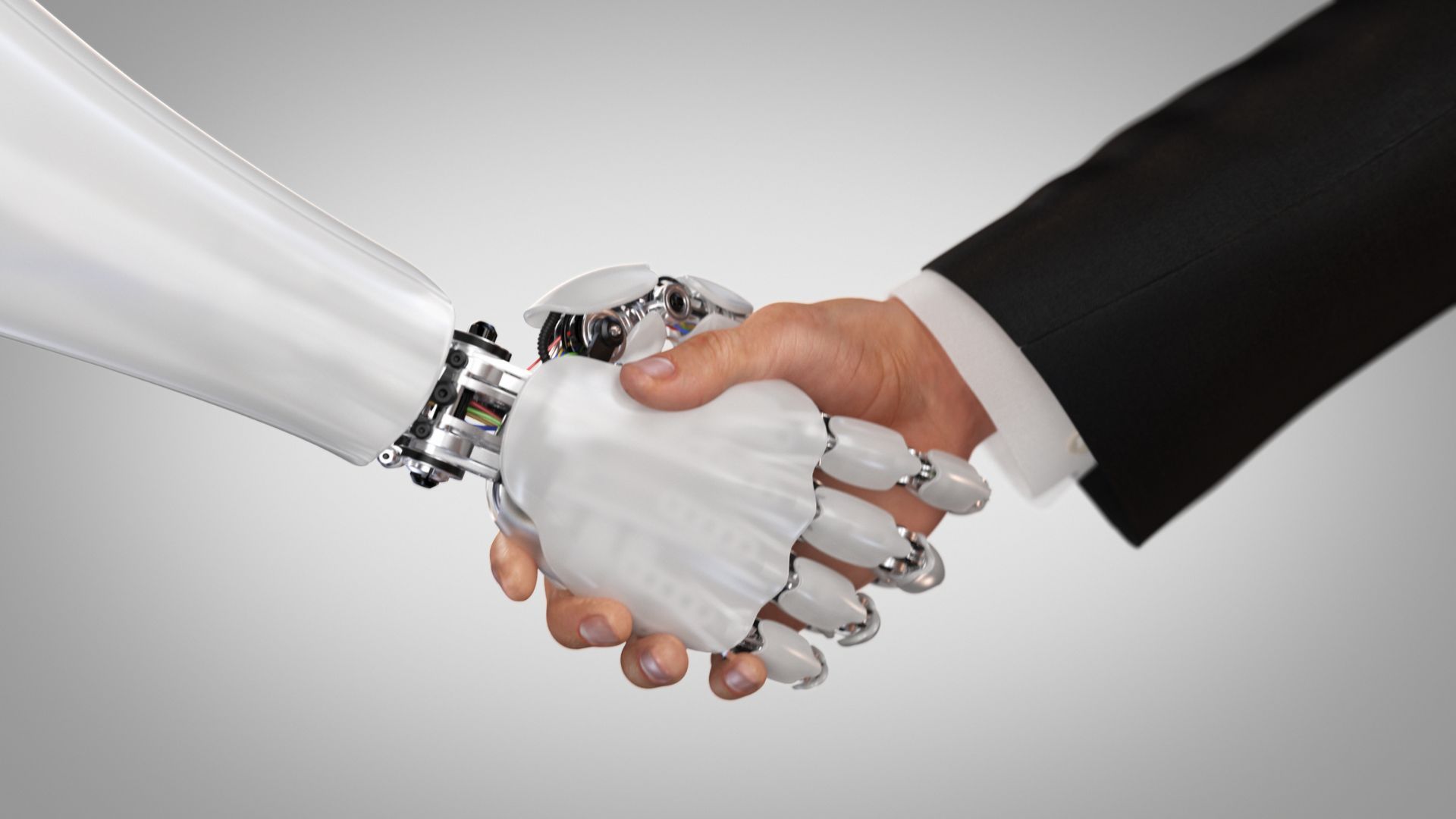The Future of Work: Embracing AI with Purpose

The Future of Work: Embracing AI with Purpose
Artificial Intelligence (AI) is rapidly transforming the modern workplace, ushering in opportunities and challenges that demand thoughtful consideration. According to the World Economic Forum, AI is expected to displace 97 million jobs by 2030, while simultaneously creating 93 million new roles. This dual impact highlights the necessity for businesses to prepare for an AI-driven future.
Organisations are increasingly integrating AI to automate tasks, optimise productivity, and improve decision-making processes. However, this transformation comes with the responsibility of ensuring data integrity and addressing employee concerns over job security and ethical implications.
As AI continues to evolve, its integration varies significantly across industries. For instance, in sectors like finance and healthcare, AI-powered tools are reshaping roles, allowing professionals to shift from repetitive tasks to strategic advisory positions. But with this technological wave come concerns about data privacy, the potential for bias in AI algorithms, and the imperative of upskilling the workforce. Addressing these challenges requires a comprehensive approach that puts people first, ensuring technology acts as an enabler rather than a replacement.
"People often think it’s perfection over progress. Having no clear strategy or roadmap leads to a significant loss of productivity."
During a recent Australia Market Update, people2people NSW Managing Director, Catherine Kennedy, was joined by Fiona Wilhelm, founder of Human Centered AI, to discuss the implications of AI in the workplace. Their conversation provided valuable insights into common pitfalls, the changing landscape of work, and how businesses can best prepare for an AI-enhanced future.
One of the critical challenges Fiona highlighted was the lack of strategic direction when implementing AI. "People often think it’s perfection over progress," she explained. "Having no clear strategy or roadmap leads to a significant loss of productivity." She recounted her experience in rolling out AI tools to a large organisation of 10,000 employees, emphasising that waiting for a perfect solution rather than making incremental improvements could be detrimental.
Data quality is another pressing concern. Fiona drew an analogy, saying, "AI is like a toddler that needs to be trained with high-quality data. If your data isn’t cleansed or organised, harnessing the power of AI becomes nearly impossible." This point underscores the importance of robust data management practices. Businesses need to ensure their data is accurate and secure, particularly as AI technologies become more pervasive.
Catherine and Fiona also discussed the risks associated with ignoring AI's potential impact. Fiona noted, "The cost of doing nothing is super dangerous. People will find ways to use AI tools, like ChatGPT, on their personal devices if businesses don’t provide approved, secure options." She elaborated on the necessity of providing employees with the right AI tools to remain competitive, emphasising that resistance to change could leave companies at a disadvantage.
When asked where businesses should start, Fiona suggested two main strategies. Firstly, she recommended "crowdsourcing pain points within the organisation." Identifying time-consuming tasks and addressing inefficiencies could lead to happier and more productive employees. Secondly, she stressed the importance of data governance: "Who's looking after your data, and how are you securing it? If your data finds its way into the public domain through open AI tools, it could pose significant risks." These strategies highlight the need for proactive planning and employee engagement.
Catherine wrapped up the conversation by reflecting on the human aspect of AI integration. As Fiona aptly put it, "We need to put the human at the centre and view technology as an enabler. It’s about understanding what employees need and finding the right AI solutions to empower them." This approach can help alleviate fears and create a more adaptive and resilient workforce.
Tips for Integrating AI in the Workplace
Implementing AI effectively requires a thoughtful strategy. Here are some practical tips for businesses:
- Educate and Train Employees: Ensure that staff understand AI's capabilities and limitations. Regular training sessions can help demystify the technology and equip employees with the skills needed to use AI tools confidently.
- Start Small and Scale Up: Rather than attempting a complete overhaul, begin with pilot projects. This allows you to identify what works and refine your approach before a full-scale implementation.
- Prioritise Data Integrity: Clean, structured, and secure data is essential for AI to function optimally. Invest in data management systems and establish protocols to ensure data accuracy and security.
- Foster a Culture of Innovation: Encourage employees to suggest ways AI could alleviate their workload and enhance productivity. This not only drives innovation but also increases engagement and buy-in from the workforce.
- Address Ethical Concerns: Develop guidelines to ensure AI use is fair and transparent. Consider forming an ethics committee to oversee AI initiatives and manage potential risks.
Find the job you love I Find the right talent
Get in touch with people2people
Australia I United Kingdom
In business since 2002 in Australia, NZ, and the United Kingdom, people2people is an award-winning recruitment agency with people at our heart. With over 12 offices, we specialise in accounting and finance, business support, education, executive, government, HR, legal, marketing and digital, property, sales, supply chain, and technology sectors. As the proud recipients of the 2024 Outstanding Large Agency and Excellence in Candidate Care Awards, we are dedicated to helping businesses achieve success through a people-first approach.
Find the job you love I Find the right talent
Get in touch with people2people
Australia
I
United Kingdom
In business since 2002 in Australia, NZ, and the United Kingdom, people2people is an award-winning recruitment agency with people at our heart. With over 12 offices, we specialise in accounting and finance, business support, education, executive, government, HR, legal, marketing and digital, property, sales, supply chain, and technology sectors. As the proud recipients of the 2024 Outstanding Large Agency and Excellence in Candidate Care Awards, we are dedicated to helping businesses achieve success through a people-first approach.
Recent articles





Latest Media Features
List of Services
-
11 tips for employers to succeed in 202511 tips for employers to succeed in 2025
Human Resources Online
February 14, 2025 -
How will advisers’ salaries change this year?How will advisers’ salaries change this year?
Money Management
Janurary 17, 2025 -
Being a supportive employer in 2025Being a supportive employer in 2025
Money Management
January 6, 2025
List of Services
Get in touch
Find out more by contacting one of our specialisat recruitment consultants across Australia, New Zealand, and the United Kingdom.
Copyright © 2025, people2people
people2people acknowledges the Traditional Custodians of country, pays respect to their Elders past and present, and extends that respect to all Aboriginal, Torres Strait Islander and Māori peoples today.
people2people partners with CarbonInvoice to measure and mitigate any carbon emissions associated with the work we do.
Specialisations
Locations
Resources

